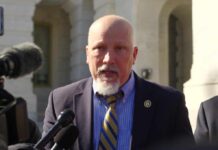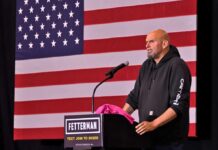
In a striking example of the consequences of progressive policies, the flagship Whole Foods store in San Francisco announced its “temporary closure” after just over a year of operation. The store faced significant challenges surrounding crime and drug use in the area and ultimately chose to close to protect its employees’ safety.
The store, located at Eighth and Market Streets, had become a focal point for concerns about crime in the city. “To ensure the safety of our team members, we have made the difficult decision to close the Trinity store for the time being,” a Whole Foods spokesperson said in a statement. The location may reopen if they feel they can ensure the safety of their team members.
San Francisco politicians and the local news media say crime isn't increasing, but Whole Foods begs to differ. Today Whole Foods announced that it is abandoning its one-year-old flagship store downtown because of crime and rampant drug dealing. https://t.co/2j4l0sJWc6
— Michael Shellenberger (@ShellenbergerMD) April 11, 2023
Matt Dorsey, a member of the District 6 San Francisco Board of Supervisors, acknowledged the issues faced by the store, stating that the neighborhood was aware of problems related to drug-related retail theft, adjacent drug markets, and the many safety issues related to them. He also highlighted that San Francisco had been denied the benefits of a fully-staffed police department for nearly 30 years, with the city experiencing a police understaffing crisis that has never been worse.
This decline in law enforcement presence is evident in the statistics. Since 2017, San Francisco has lost 335 officers, leaving its staffing level at 1,537 officers, far short of the 2,100 officer goal set by the city.
The closure of the Whole Foods store is just one example of the larger problems facing San Francisco. The city has seen a massive decline in foot traffic downtown since the start of the COVID-19 pandemic, as remote jobs have increased and small businesses have been forced to shut down. Extreme poverty, drug use, and mental illness have become all too common on the streets. City Hall officials are now predicting a nearly $800 million deficit in the city’s budget.
Dorsey has taken note of the severity of the situation, announcing his intention to introduce legislation with Supervisor Catherine Stefani to amend the City Charter to fully staff the city’s police department within five years. Dorsey stated that the closure of Whole Foods, along with many other safety-related challenges, serves as “Exhibit A” as to why San Francisco can no longer afford to ignore its police understaffing crisis.
Clearly, the progressive policies in San Francisco have fostered an environment in which businesses struggle to operate safely, and residents are left to deal with rampant crime and drug use. The temporary closure of the Whole Foods store is just one symptom of a much larger issue facing the city. As Dorsey and others work towards solutions, San Francisco residents must demand change from their local leaders.





























